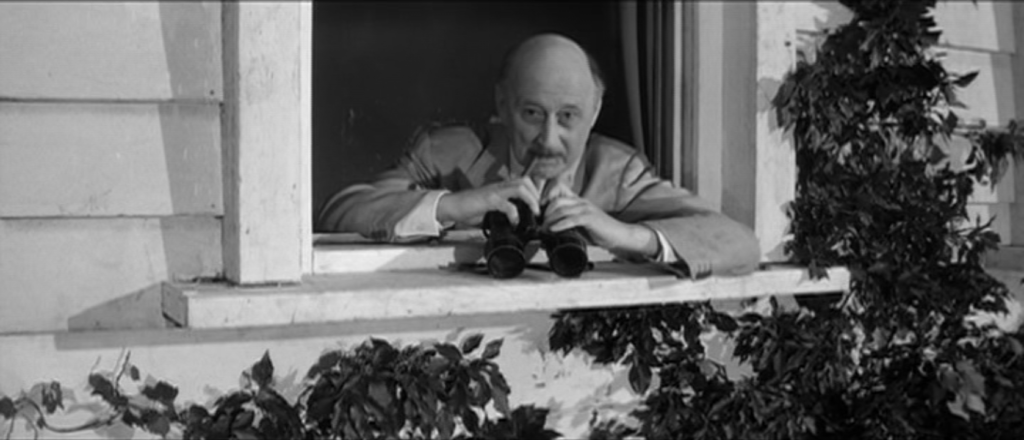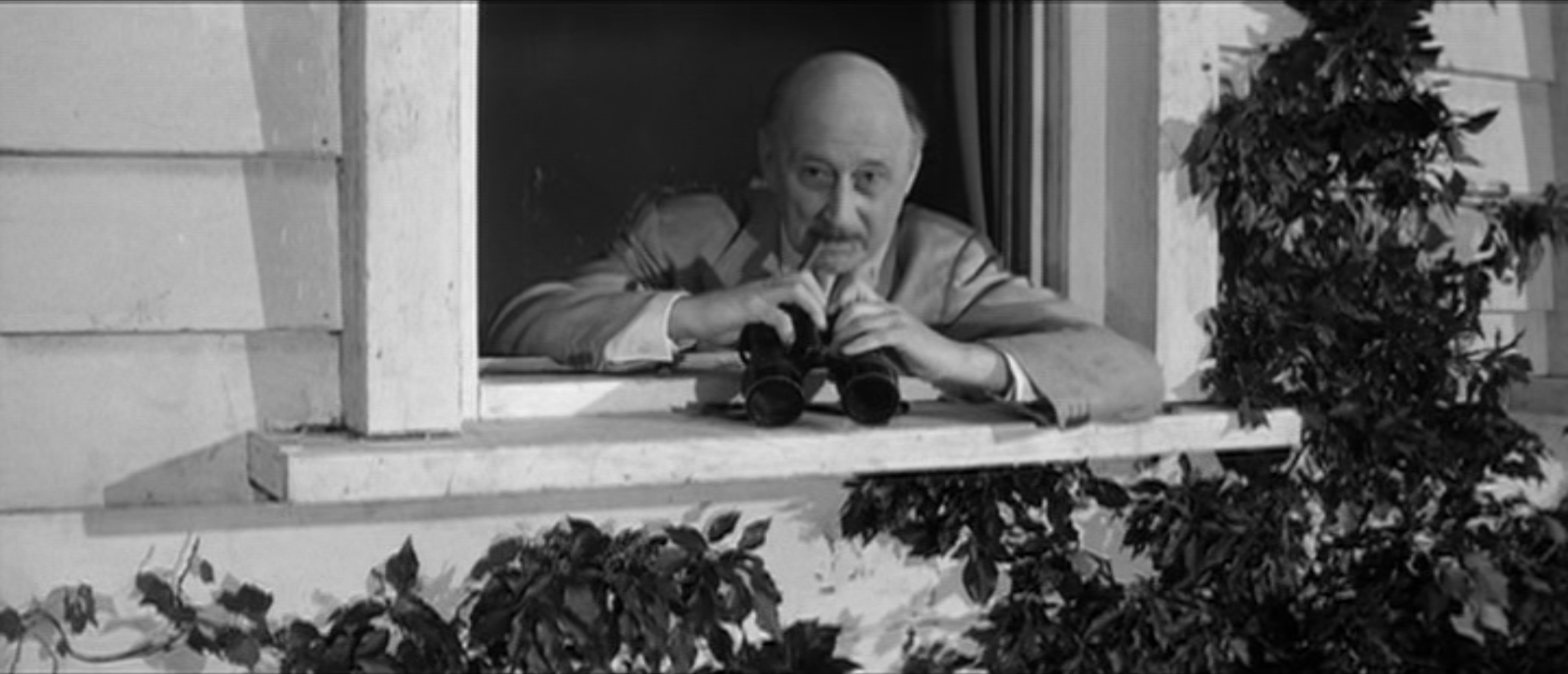Movie Review: Never Take Candy from a Stranger (1960) directed by Cyril Frankel (aka “Never Take Sweets from a Stranger”)
The Carter family, Peter (Patrick Allen), Sally (Gwen Watford), nine-year-old daughter Jean (Janina Faye) and Sally’s mother Martha (Alison Leggatt) have moved from Britain to Jamestown in Canada so that Peter can take up a job as the school principal there. It’s an exciting opportunity for Peter to advance in his career, and away from the crowding and crime of the big cities. But small towns have their own dangers.

Peter and Sally return home late from a welcoming party for the new principal at the school. To their surprise, Jean is out of bed. Seems that she can’t sleep from restlessness. As her parents ask about Jean’s day, she mentions that she and the neighbor girl Lucille (Frances Green) went to see Mr. Clarence Olderberry Sr. (Felix Aylmer) as he’s known for giving out candy to kids. But before he gave them the candy, Mr. Olderberry asked them to take off their clothes and dance for him. Jean doesn’t quite understand what’s wrong here, but it makes her feel restless, and later she has nightmares.
The adults do recognize what’s wrong and dangerous here, and Peter Carter decides to file a complaint. He immediately runs into roadblocks, starting with Police Chief Hammond (Budd Knapp). He doubts the veracity of Jean’s story (children have vivid imaginations) and warns that the Olderberry family are rich and powerful in the community. (Mr. Olderberry, Sr. has a bust dedicated to him in the high school.) Clarence Olderberry, Jr. (Bill Nagy) is quick to throw his weight around, promising he’ll punish his father’s accusers if this goes forward.
The townsfolk either see Senior as a harmless eccentric who did a lot to make the town prosperous, or think that he is a creep, but one whose wealth and power make it pointless to go after. Best to just avoid him! Lucille’s father sends her out of town so she can’t be forced to give evidence.
Sure enough, the Olderberrys hire a slick lawyer (Niall McGinnis) whose cross-examination tears Jean’s testimony apart by confusing and bullying her. Rather than have her suffer further torment, the case is withdrawn. But that’s not quite the end of the story.
This movie comes from Hammer Films’ experimental period, trying different subgenres to see what went over well, before fully committing to Hammer Horror. This is an “issue” film, dealing with the danger of pedophiles but more so the danger of letting wealth and power ride roughshod over the safety of a community. The setting of Canada is meant to make the story slightly less personal to British audiences, though the opening disclaimer emphasizes that it could happen in any country.
Despite the title, Mr. Olderberry Sr. isn’t a “stranger”–Lucille has met him before, he’s a mostly respected member of the community, and he has a reputation among the children for giving out sweets. Most people who assault children are not random strangers, but people the child is supposed to trust. Interestingly, he never speaks on camera. This makes him even more sinister-seeming, but raises questions about his mental competence.
Junior sincerely believes his father to be innocent, but is an enormous ass on top of that. Even his “graciousness in victory” comes across as more about his family’s power than any real kindness. Finding out the truth and that he could have prevented tragedy all along crushes him.
As expected, the courtroom scene and subsequent miscarriage of justice are uncomfortable to watch. Censorship standards of the time keep it from getting graphic, but wow. The final act is more conventional thriller as the little girls once again meet the old man, but now understanding that he’s a danger.
Audiences were not ready for this kind of film in 1960, and it remains one of Hammer’s more obscure efforts. It’s decently acted and shot, but not brilliant, and social mores have in many ways changed to make it obsolete. Perhaps of most interest to those interested in the treatment of the subject matter in Hays Code-compliant movies.

